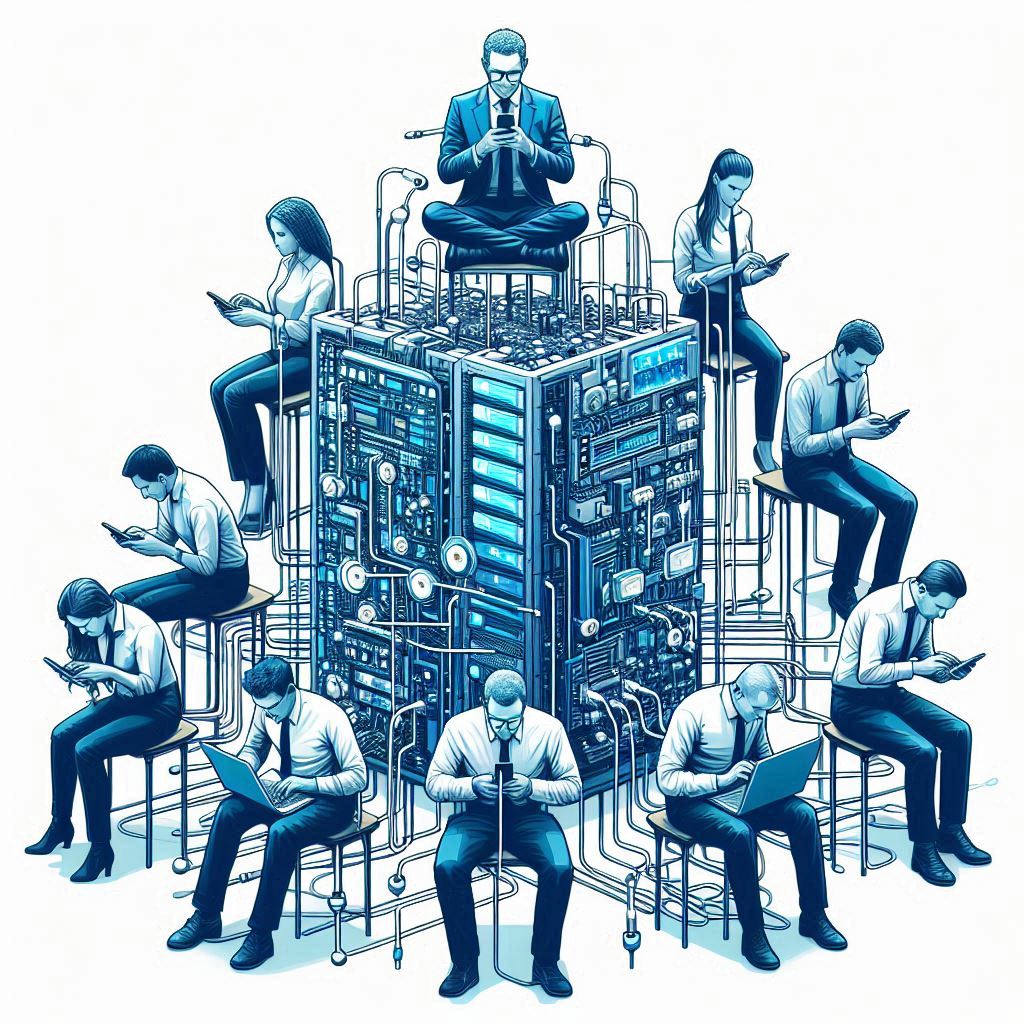Big Tech, the Internet, the Loss of Choice and the Skyrocketing Cost Of Living
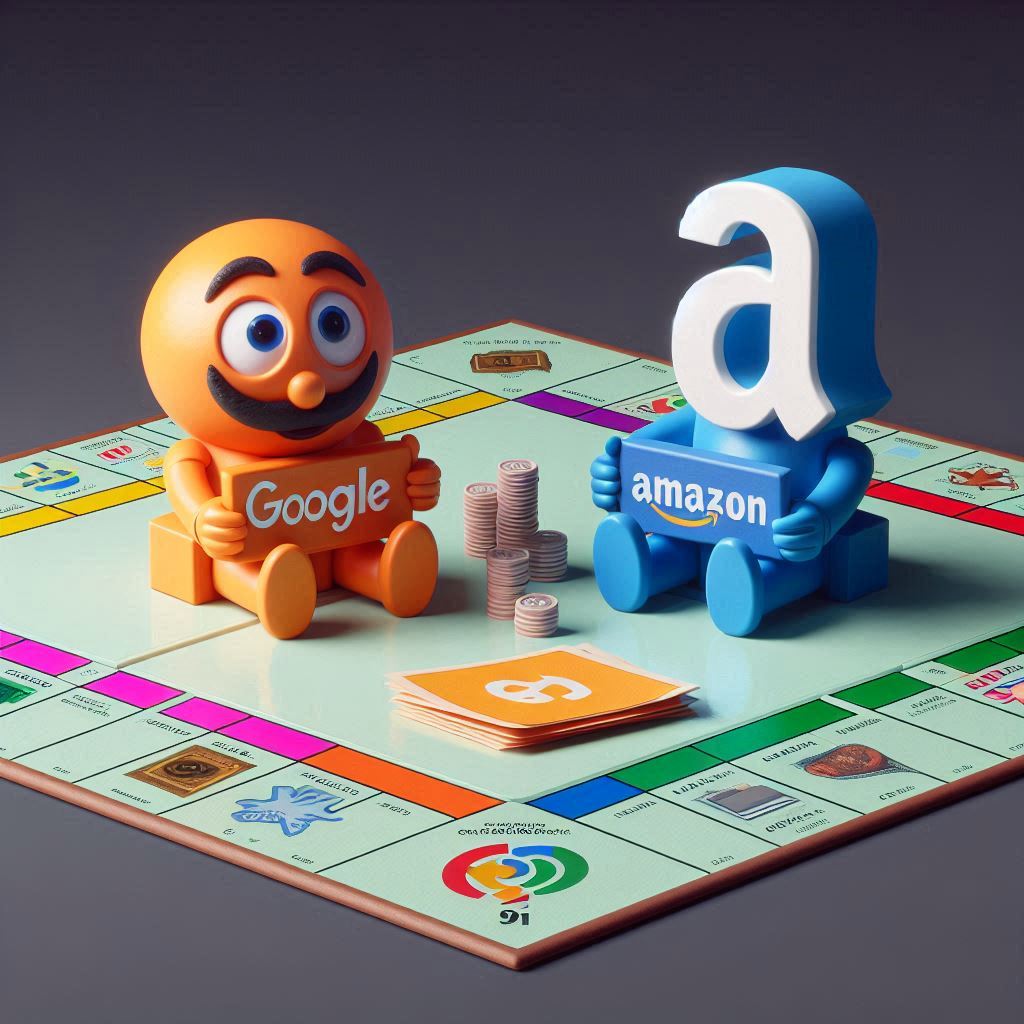
Did you ever wonder what happened to all the little mom and pop stores around small towns in the US?
I’ll tell you what happened to them. They got swallowed up by massive competition from the Walmarts, the Targets, the Costcos and the Home Depots scattered about the country. I ask you, how can a small mom and pop store offer the discounted prices you’re looking for when they’re buying product inventory in the thousands of dollars when a company like Walmart is buying inventory in the billions? Is Walmart good for your wallet and your limited budget in this time of skyrocketing food prices and home goods? Yes, certainly. But what about workers? What about small companies driven out of business?
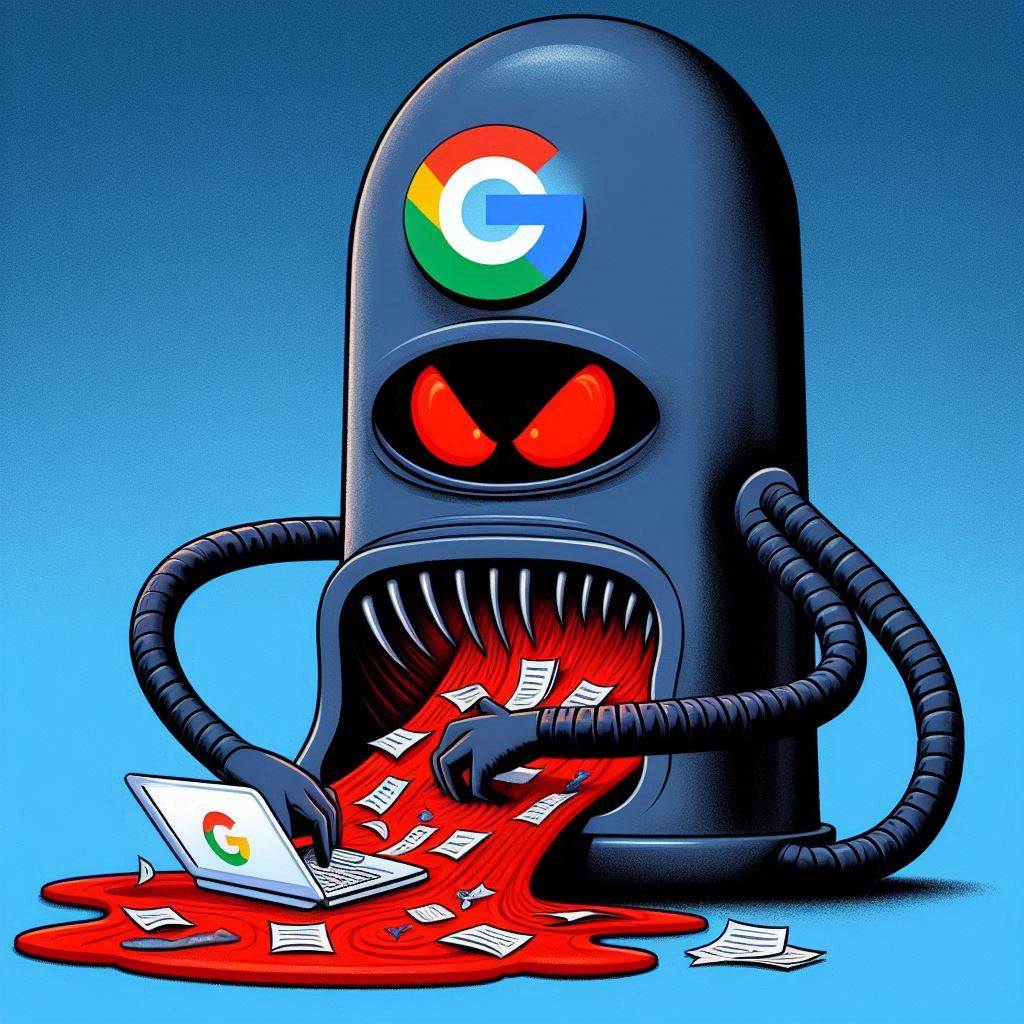
Once upon a time, when the internet was brand new you had all these computers hosting disparate websites around the world. How was any information ever to be found? Well, along to the rescue came the internet search engines. Basically in the name of providing you the service of making your website findable, these engines stole all the text from your domain, catalogued it, indexed it and put it up for reading in their own library. You ever wonder how it was Google became so enormously successful? it’s because they stole all the data around the world and made it their own. Did they pay licensing fees or royalties to any websites? No. They didn’t have to because they convinced everyone they were providing a service. In a nutshell, they got all their product for free. (See related article Why Doesn’t Google Pay Fees To Websites for Using their Content?)
In the early days of YouTube, do you think people were watching clips of other people’s boring home movies–with crying babies and drooling cats and dogs? No, of course not. They were watching pirated copyright-protected content like Hollywood movies. This is what fueled YouTube’s ascent. It was only later with YouTube’s success that people started watching other people’s self-made content.
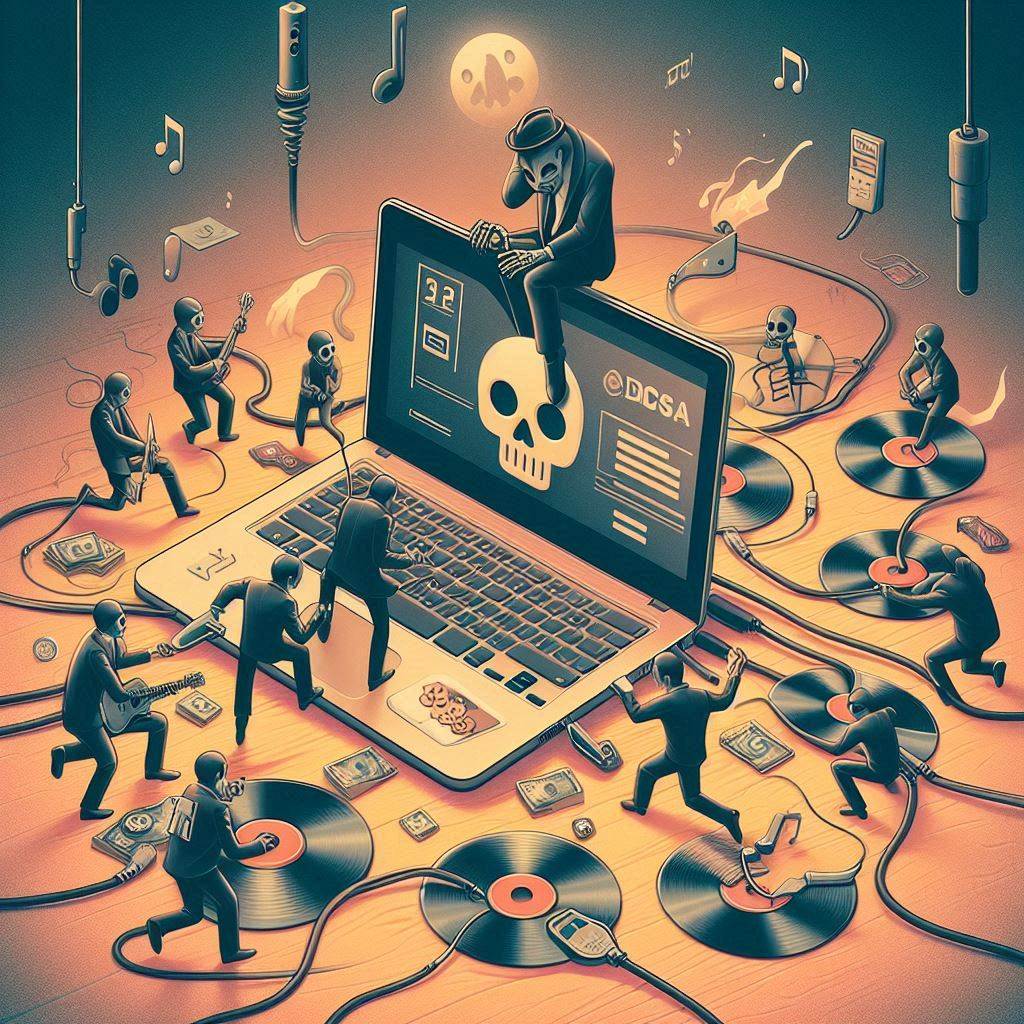
And do you not remember Napster? This newly invented P2P software was a technologically wonderful idea for sharing files in a distributed fashion with no central sever. But what really made it take off was the piracy of copyrighted music. When I purchased music as a young adult, I bought CDs for my music listening. I spent real money for these physical compact discs. But how easy was it to just download the music shared online for free with Napster? It was so popular and easy it made the owners multi-millionaires. And when they finally shut Napster down, they took all that ill-gotten gains and funded Facebook.
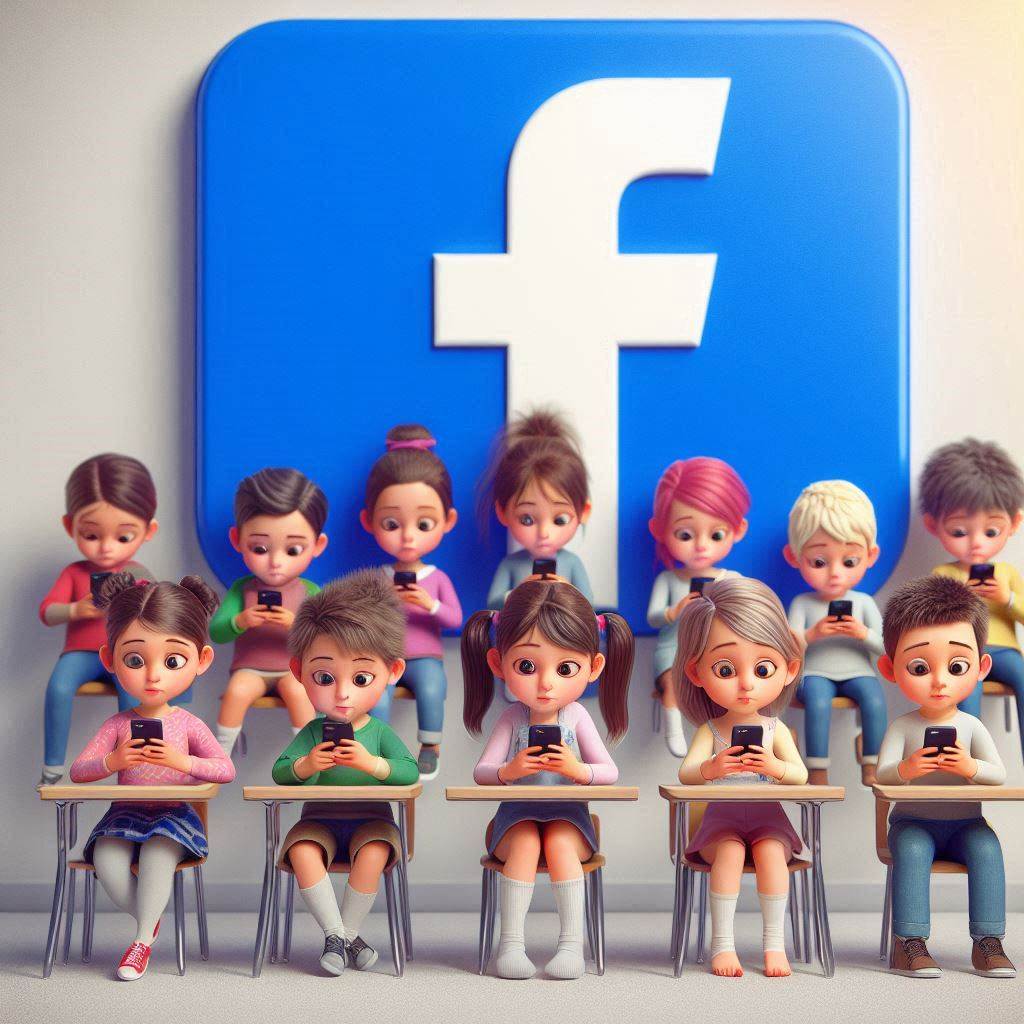
Facebook is a wonderfully creative idea for non-tech-savvy people who want a website, for anyone that wants to connect with friends and family or perhaps for anyone that wants to sell their stuff. But has it not robbed kids of their childhood? Has it not completely replaced the manner in which we conduct our social lives? Kids don’t go outside to play anymore. Not just in the United States. I’ve seen it first hand in poorer nations like the Philippines. Kids age 8 to 14 do not go outside if they have a phone. They spend all their social time communicating with their peers on Facebook and TikTok. It’s like an addictive drug.
So is Facebook to blame for all this internet addiction? In fairness, I’d have to say, probably not.
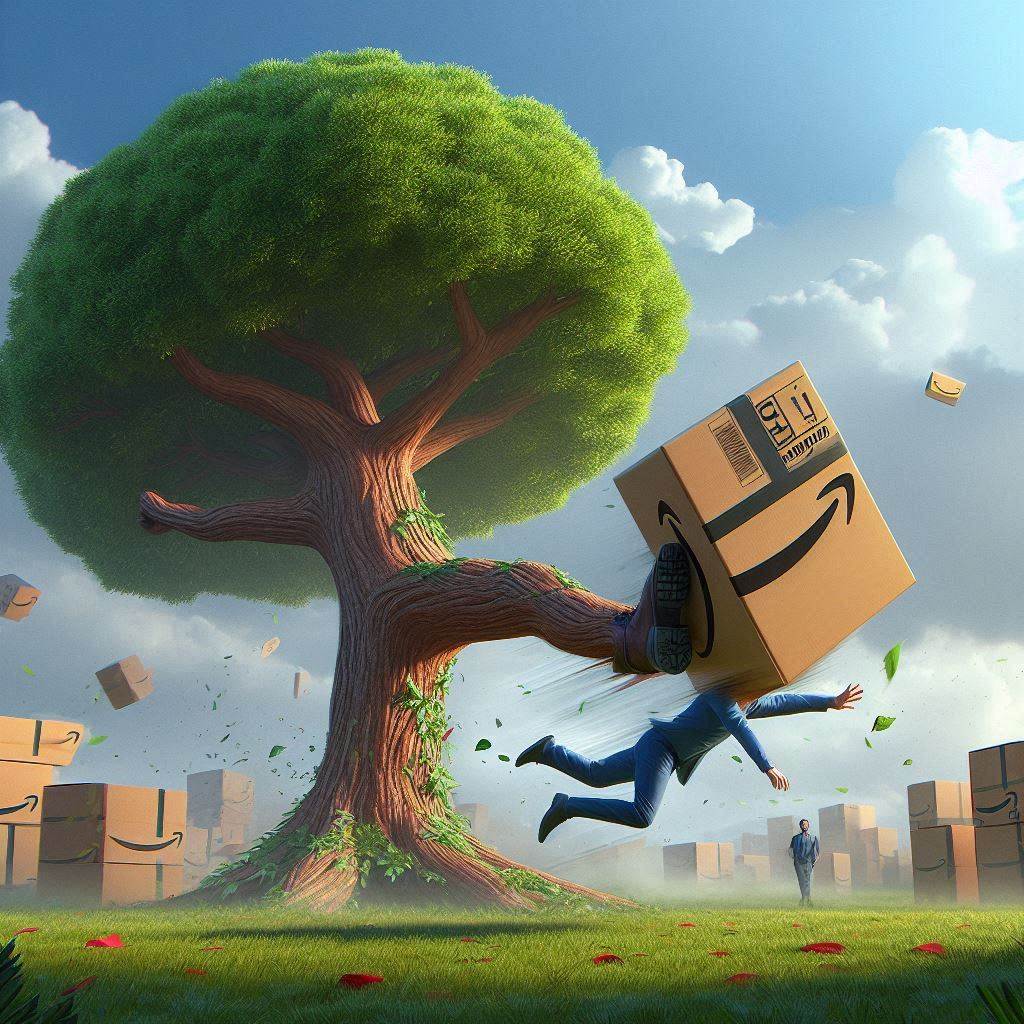
What about Amazon as a high tech company? Indeed Amazon is a wonderful site that has made our lives tremendously easier. Now, we no longer need to make that trip to the local Walmart. We can just order whatever we need online and it comes right to our door. So now we can spend even less time outside and keep ourselves planted on the couch.
I remember my son was working for Amazon a few years back, and just before his two year anniversary when he was going to get benefits, he got let go. Was this a coincidence? Or is this the way that Amazon best utilizes a disposable workforce?
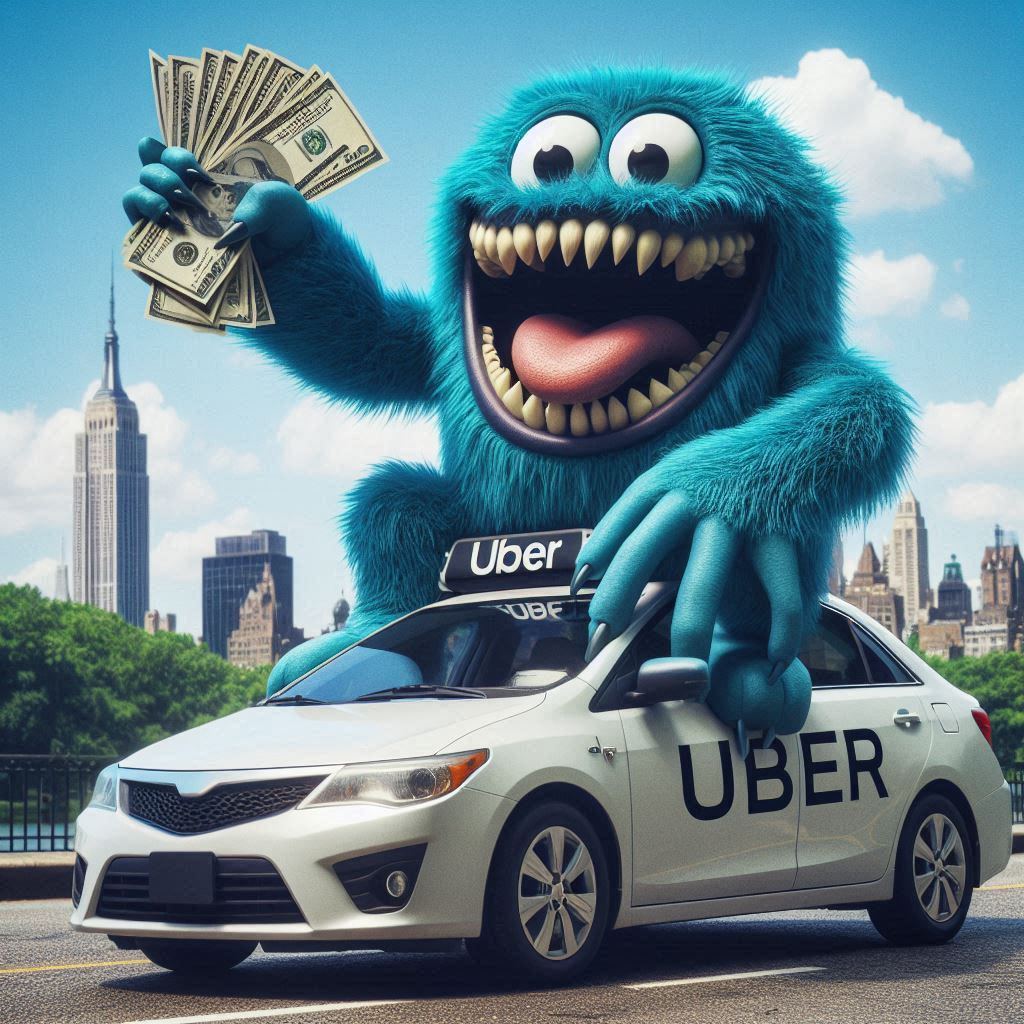
In my travelings around the US I have taken dozens and dozens of Uber rides. Often when I talk to drivers I find I am speaking to someone working their 2nd or 3rd job. With only the slightest prompting, many drivers have “spilled their guts” to me and complained how little money they’re making with Uber. They tell me about the tires, and brakes and repairs they need for their cars. They tell me they’re just getting by. Los Angeles. El Paso. Albuquerque. Las Vegas. Orlando. These drivers are just barely making it in this inflationary, post-COVID economy.
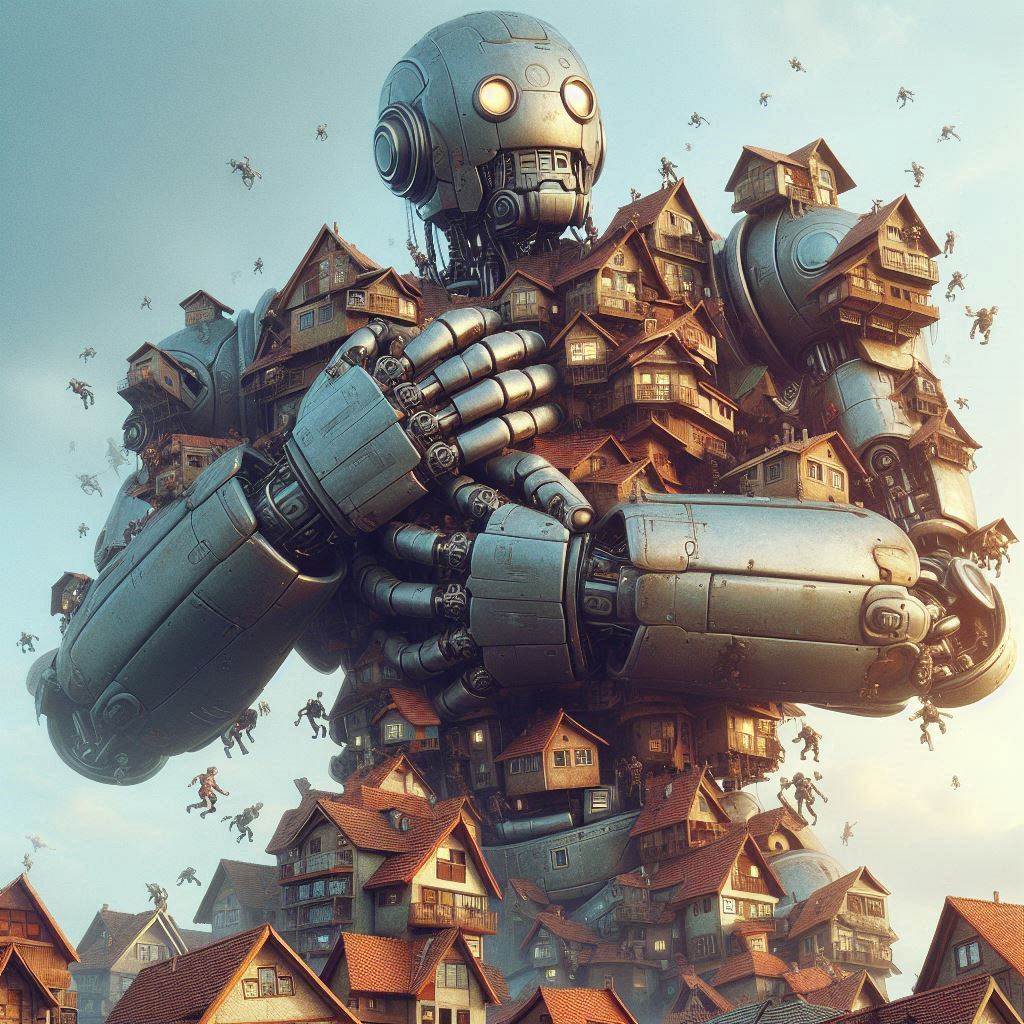
It was just in 2016, I remember that I could go to the AirBnB website and rent a nice 2 bedroom house for a $1000. Ordinarily an average hotel would have cost me $70 a night–so a 28 day hotel stay would have been $1960. Choosing an AirBnB was therefore a “no-brainer” decision. Now when I look in 2024 in AirBnB, I can only get a 1 bedroom condo for $2400 a month that is one third the size of the house I used to rent in 2016. To be fair, in that same 8 year time frame the hotels went up a bit to around $90 a night. So when I do the math now (28 x $90 = $2520), I find the AirBnBs are no longer such a great deal. What happened? Well as homeowners set their rent prices, Airbnb’s fees slowly went up–to build their website and service all the support calls–and the money earned by the owners went down. And so to compensate for this loss, the owners raised their prices in turn. This iterative price adjustment kept happening this last eight years to the point where it’s almost prohibitive in cost now to rent an AirBnB property in the US. And it’s also been blamed for soaring prices in some cities for long term rentals.
So what has the success of all these large companies done to America? Well, just like Walmart, it’s destroyed the ability of the little people from competing. Slowly, America is sinking into a grave that comes from the success of all these technological monopolies in America. It has taken the money from the many, and placed it into the hands of the few.
What exactly do all these companies have in common –Walmart, Google, Uber, Amazon and AirBnB? Quite simply they are all giant businesses that are aggregating more power and control and driving wages lower and lower (relative to inflation). What they also have in common is that they’re just middlemen. They’re selling someone else’s product, someone else’s labor at a cheaper price. Let’s face it, Walmart sells products, but they sell products mostly manufactured in countries around the world, not from the USA. They don’t really do or make anything. They just distribute. They sell at rock bottom prices with which no small businesses can compete. Uber sells the labor of American drivers. They don’t drive cars themselves. They’re just the schedulers. Airbnb sells time slices for real estate. They don’t own any of the houses. They just connect renters to owners. But they produce absolutely nothing. Google, as I said before, has gotten insanely rich off of stolen web content. How easy is it to make money if you pay nothing for the product you’re selling? if you look even now when Google displays search results, you see that they display the searched for content inline, thus obviating the need to actually visit the web page that originally hosted the content!

In short, they’ve become just one big massive web page, no?
We see Amazon has been using its workers for mundane tasks like packaging, labelling and sorting for years, but now has been replacing these workers with autonomous robots. Uber has made the cost of a taxi ride super cheap, but charges such an insane portion of the fare, drivers can’t survive without working 60 hour weeks and slowly running their cars into the ground. AirBnB has raised the price of home rental not only in the US, but has done so in some other countries to insane levels. In Mexico I’ve seen a doubling of rent and a quadrupling of prices in poorer nations like the Philippines. Is this good for Mexico and the Philippines? Well, it might be if they made more money. Along with higher rent prices come over-inflated fees and the enforced collection of taxes.
The AirBnb software has certainly made the business of renting your property easier, but not necessarily more profitable. So owners take away the same amount of money or a little bit more, but work twice as hard. The difference is now there’s a middleman taking a big chunk of the pie. And then in the US you have this situation where the AirBnB rental business is so good it drives up the cost of houses and then no regular working people can afford to live there anymore. Are house prices already insane enough in this post COVID world without this AirBnb contributed inflation?
In essence what has happened in every case of these large companies is that competition has been stifled. Because Walmart is such a super successful business, today 90 percent of America lives less than 10 miles away from one. With that kind of market penetration, how can any small stores ever hope to compete? Do you really wonder why city downtowns are evacuated and crumbling?
As Americans don’t we abhor a monopoly? Doesn’t a monopoly lead to a kind of capitalist inspired communism–where competition is removed?
With a company like Uber, drivers have no option but to use the software given to them by the company. Yes, they could choose a competitor like Lyft, but what chance does a driver ever have of becoming independent and making his own money without having to give such a large portion of the fare to the software companies? Can he get his own generic “Uber” car software that serves him in his own local town? Not likely. He would need the ability to host a website, host some complex software, perhaps create some smartphone apps and then of course he’s still competing with hundreds of drivers in his own town using the more popular Uber and Lyft branded apps. And the same is the case with AirBnB. How many websites that were dedicated to advertising a single vacation home have dried up and moved to the AirBnB platform? I’m sure it’s in the tens of thousands. Now instead of making their own and best commission, they have to pay a significant chunk of their money to AirBnB.
As I said, all these companies are middlemen. They provide a service that connects the producer with the consumer. Even Walmart. They produce absolutely nothing. I am aware that a company like Walmart has its own brands like Equate, and Good Value, but for the most part they are buying products from a manufacturer or grower, and reselling them to the end consumer. Amazon uses the same model as Walmart except they have no physical stores, just an online presence. They sell not only manufacturer products, but they sell third party products as well. So to answer the question, what happened to all those mom and pop stores that went out of business? Well, now you can find them on places like Amazon and Ebay paying Amazon and Ebay commissions. Again, that’s less money for the independents, more money for the middlemen.
Airbnb takes all your homes, cottages, basements and garages and makes them searchable in smart phone applications. They take a reservation for the homeowners and insert their fees and make the towns happy by collecting their taxes. Is this good for America? Should homeowners in a peaceful neighborhood have to tolerate a steady stream of transients? What happens when soaring prices make it impossible for lower income people to rent a home?
My greater point is this–slowly but surely, power is being wrested away from people. As these cloud-computing backed companies–which handle trillions of petabytes of information–become larger, individuals lose the choice of buying from other companies. Individuals lose the choice of where they can work. People lose the ability to resist laws that are made when these extremely large, rich and powerful companies lobby.
One day the world will devolve into just having two or three mega companies. Do you not see this coming? Everyone, all people, whole nations will work for these companies. Indeed, the state and these companies may do a sort of merger in the future. The state-company will be in control of all information. And you will comply to all its over-reaching laws.

So I have to ask you as an American, are you really afraid of Communism? In this future information-controlled age, with controlled production and distribution by a few elite, minority persons, there are going to be insane inequities–inequities which will dwarf the economic and social shortcomings of communism today. Are you really that afraid of communist China? Well, guess what? China likes big walls just like our big southern border wall with Mexico. The Chinese are no different than us. They’re just as racist and as loving of their own culture as we are of our own American culture. What you really should be afraid of is the control that the elite rich with their cloud computing companies are exerting, right here in the US, on the American people. Choice is being limited. Wealth is being sucked out of the middle class. In the future, there will be only two social classes– perhaps an elite 1 percent, and then there will be everybody else making a wage that is just enough to get by.
And there’s a related issue here.
You see, the internet has not only fostered these giant tech companies, but it has done a crazy thing to our American psychology. It has amplified our social anxiety one hundred fold. How has it done this? Well basically today we can complain and whine about other people at the speed of light. We can post our grievances. We can, en masse, shame individuals who don’t fit our category of “good” morality. We can make a post on Facebook, X, or TikTok and hundreds of thousands, perhaps millions of people can react in a matter of hours. And these posts can stay around for years and years. Effectively we have taken our social griping and made it extremely potent and venomous with the internet. We witness, we react and then we collectively take action to events in mere days where a couple decades ago, it took months or years to foment a social cause. A good example, is the “cancel culture” that has been born out of the internet’s potency. If you post the wrong thing, you can be fired from your job, alienated by friends and family–all in a matter of hours or days. As a nation, as a world, we judge and discriminate–we are beginning to act as one big huge entity. What the internet has done is, it has sort of stitched us together into one big super-organism. Does that sound insane?
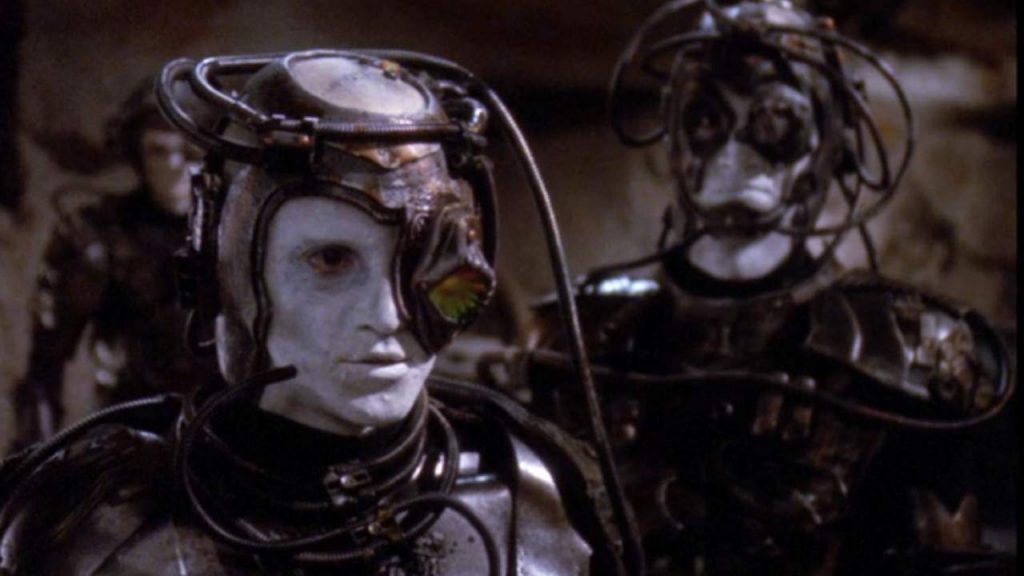
Do you not understand how we are becoming more indebted and enslaved to each other’s opinions by the fast-acting nature of the internet? We are heading to a loss of freedom that represents a degree of severity that is far, far beyond the deficiencies of communism. We are fast losing our freedoms and our range of choice as we huddle together under the umbrella of these large tech organizations.
You see our amplified social fear is pushing us together into ever growing larger social groups. When we’re afraid, we become more desirous for the company of others. For example we know when war breaks out, we slavishly cling to one another for moral support. We put away our petty grievances and we bind together as a fighting nation. Today, we act as if there is a war on every day. So on one hand we have greater social fear pushing us together, and on the other, we have these Big Tech companies pulling us into their giant vice.
The action of the internet has made communication 1,000 fold more effective. And this has had a profound effect on our social organization. Not only has it allowed Big Tech companies to swell in numbers and extend their reach across the globe, but it has placed an insane amount of power into the hands of the few. Because competition is being squelched by these large companies, more and more individuals are forced to seek safe harbor with these same places of business.
And so do you take me for some sort of communist because, perhaps, you assume I’m suggesting that these massive companies be regulated or broken up? I’m not suggesting that. Indeed, I’m not sure what the best answer is. But I am saying your deeply American-branded fear of an external threat like communism is wholly unfounded. I’m saying, the threat is here right within the United States. For every one Chinese person that hates America, there’s a thousand emotionally blunted capitalists trying to milk you of all your hard earned cash right here at home. It’s not just liberals, and it’s not just conservatives. In our society today, perhaps ninety percent of us have already lost our freedoms. The freedom to speak? You can speak as long as you don’t run afoul of cancel-culture fanatics. The freedom to conduct our lives privately? It’s gone. Edward Snowden already revealed that to us. There is no privacy. Big brother is always watching now. The freedom to pursue our individual happiness? Have we not robbed future generations of the American dream? Young adults today will struggle all their lives just to become homeowners. Most of them will fall prey to rich landlords and companies like AirBnB. Or they’ll have massive debt with banks whose executives live wealthy and “worry-free” because they know their banks are “too big to fail”. They know there’s always the State to catch them when they fall.
And what about the freedom to think? Well, here it is. I’m thinking freely now. And this is what I have to tell you:
We fear today that one day soon, AI will come and rob us of our humanity. But I will say to you this–the computer and the smart phone have already done that. The automation the computer has made possible, is the means by which so much power has been placed into the hands of a few skilled and lucky entrepreneurs. And ultimately we will all bow to them. All of our working days in the future may be given over to building their wealth. A computer has no “instinct”. However, human instinct tends toward selfishness and greed. And there is no amount of money that is “enough” for some persons.
And what of the computers we hold in our hands–the smart phone? We devote almost our entire lives to it now. Not one aspect of our lives is not touched in some way by this invention. We have become socially transformed. But these transformations are not all good for our emotional and economical health.
And finally–what is there that can be done about all this? Perhaps nothing. Perhaps we are riding out some hardened, unchangeable Fate. Or perhaps there’ll be a bloody revolution against the machines in some far flung James Cameronian future. Could we be rid of the computers? Who of us is ready for that step backwards in time and technology? Who of us is willing to put down this little glass and metal box we hold in our hands every day with such zeal?
Very few indeed.
And that’s why I say we have a hardened Fate ahead of us as a society. We are headed to becoming one big super organism, like the tech companies that have grown into super giant organizations. We will be like one giant social insect hive, with a great big collective body and one reigning queen making all the decisions. And every drone of this hive will be working to one purpose–stamping out the “communist” social insect hive that lives on the other side of the ocean.
Can you see the irony? As Americans, we’re living today in a kind of technological communism. I say to you–if you go looking for a scapegoat in the future to lay blame for our woes, just remember–our individual rights and freedoms are already fast out the door with technology.
